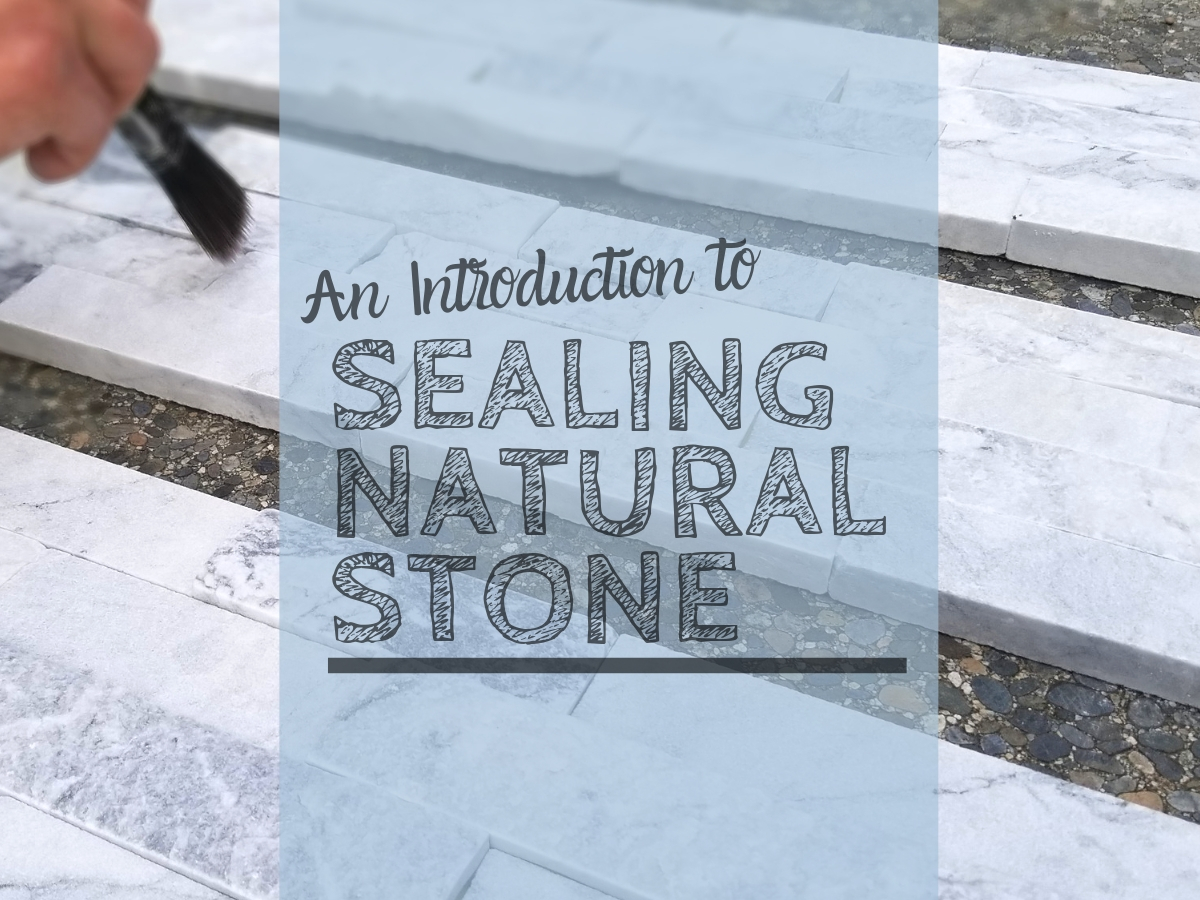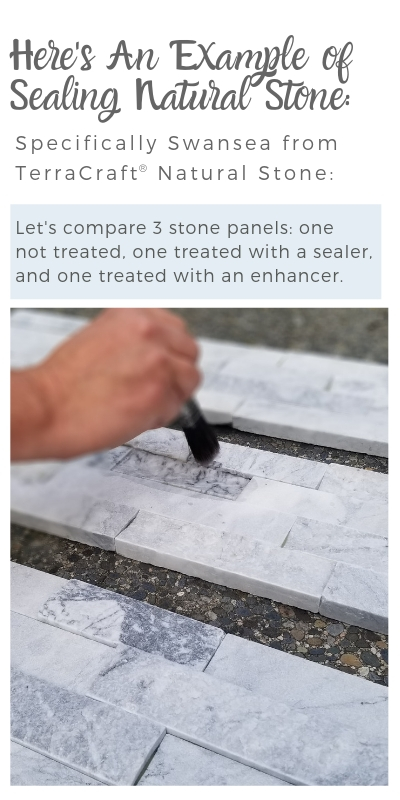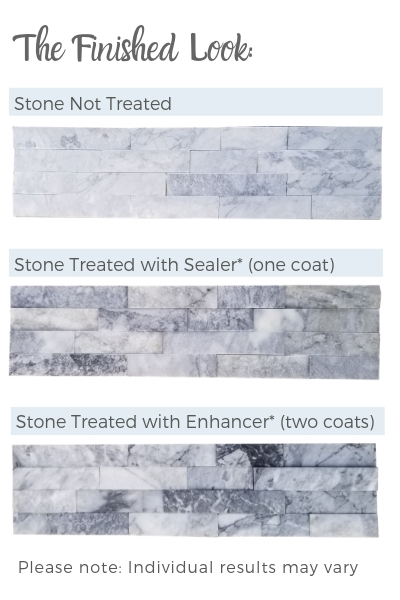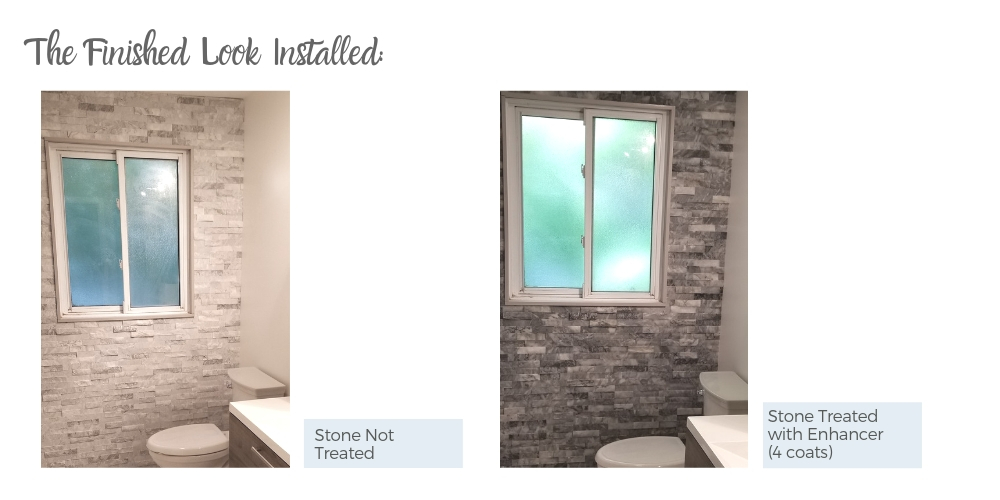
For this blog post we thought we would start discussing a question we get asked quite frequently, “Can I use a sealer on my stone project?”. While a sealer is not necessary for any stone application, the answer is yes. We need to mention, that while the answer is a yes, it is not a simple yes and there are multiple factors to consider.
Firstly, stone is porous and it needs to both absorb moisture and allow moisture to evaporate. Therefore, it is necessary to use a sealer that is breathable. Secondly, you need to determine if you are sealing a natural stone or a manufactured stone. The type of stone you have will dictate the type of sealer you use.
There are some additional factors to consider before proceeding with a sealant, and in this post we focus on natural stone applications only, and examine the differences between stone sealers and stone enhancers.
Stone Sealer verses Stone Enhancer
The first thing to determine is whether you should be using a stone sealer or a stone enhancer to achieve your desired results. Stone sealers are designed to protect your stone from staining, while stone enhancers and designed to bring out the natural colours within the stone.
Stone Sealer Considerations
If you are looking to use a stone sealer on your project there are some additional considerations you should know. Stone sealers add a protective barrier to the stone which that helps prevent staining by repelling stains temporarily providing you with some time to clean up any spills that would otherwise soak into the stone immediately. While no stone sealers are 100% stain-proof, high-quality sealers do provide a high-level stain resistance, making it much more likely to avoid those stains on your counter tops, back splashes or feature walls.
For optimal effectiveness, stone sealers need to be reapplied every 1-to 3 years. Some factors that impact this timeframe include:
- What is the type of natural stone you have used (Limestone or Marble for example)
- What is the stone’s porosity?
- What is the type of sealer used?
- Is the stone in a high traffic area?
- How often is the stone cleaned?
To maximize the protection of your stone sealer, it is best to choose a stone sealer with a longer reaction time and lists extensive contaminants that it can resist.
Another good thing to know is that there are two types of stone sealers on the market; impregnator sealers and surface sealers. Impregnator sealers penetrate and are absorbed into the stone when applied and do not affect the stone’s appearance. Surface sealers adhere to the surface of the stone, which means a textured surface is required in order to get a proper bond between the sealer and the stone. Surface sealers are not recommended for use on polished or dense stones and typically add a level of sheen to the stone’s surface.
Why Use A Stone Enhancer?
It is very important to note, unlike stone sealers, stone enhancers do not provide a stain barrier. With that said, there are combination products available on the market that contain both a stone sealer and a stone enhancer. Stone enhancers are designed to highlight and accentuate the stone’s natural color. It is a personal preference but many consumers prefer the way their stone looks when it is wet. For those consumers looking to maintain that deeper color even when their stone is dry, a stone enhancer is the product for them! In addition to providing that deeper color, stone enhancers can also add a degree of shine to your stone’s surface.



Whether you are using a stone enhancer or not, it’s important to note, sealing your natural stone will help maintain its appearance and prevent wear and staining allowing you to enjoy and be proud of your natural stone project for years to come.
Looking to buy stone in Canada and the USA? We are the one of the largest stone suppliers in North America and our products are available through our vast network of dealers located throughout Canada and the USA! Interested in finding a dealer in your area? Please visit Where to Buy to get started!